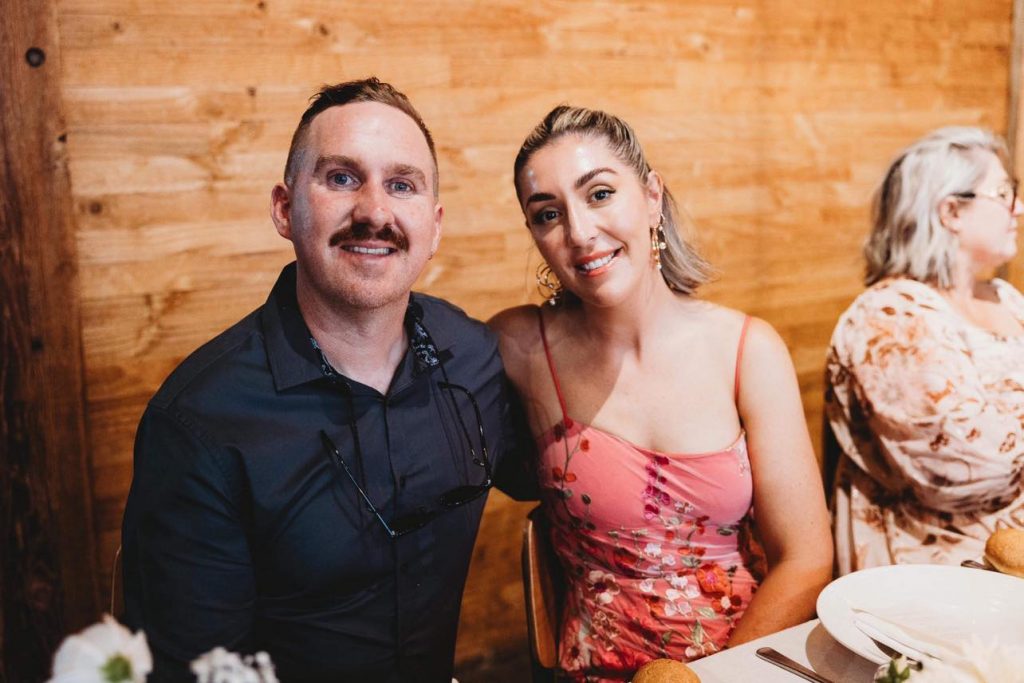
In the heart of Tasmania, extraordinary tales of survival and scientific innovation remind us of the power of hope and the importance of advancing medical research.
Today I'm reaching out to share with you a story of incredible courage and a groundbreaking study that promises to transform stroke care and recovery for individuals like James Mackey.
James, a vibrant and active Tasmanian, suffered a severe haemorrhagic stroke at the age of 29. His sudden affliction and the harrowing journey that followed highlights a stark reality: a stroke can strike anyone, anytime, with life-altering consequences.
James was diagnosed with a severe haemorrhagic stroke—an unexpected bleed within his brain that left doctors scrambling to save his life. The prognosis was grim, and as James lay in an induced coma in the ICU for three weeks, his family faced the harrowing possibility of losing him forever.
Thanks to swift medical intervention and the relentless spirit of James and his loved ones, he embarked on a remarkable recovery journey, overcoming immense odds to regain aspects of his independence.
James's story is not just one of survival; it's a beacon of hope and a testament to the urgent need for innovative stroke research and care.
The sad reality is, Tasmania faces a unique challenge, sharing the highest incidence of stroke per capita in Australia. This unfortunate distinction means our community also leads in navigating the long road of stroke recovery.
The need for local, groundbreaking research has never been more critical.
It underscores our collective responsibility to support initiatives that promise better outcomes for our fellow Tasmanians confronted with this daunting journey.
The Royal Hobart Hospital Research Foundation is at the forefront of such innovation. We are excited to fund and support a pioneering study focusing on continuous blood pressure monitoring in severe acute stroke patients.
This research, led by Ms. Felicity Charlier and under the guidance of Professor Prue Morgan from Monash University, aims to uncover critical insights into how blood pressure fluctuations during early post stroke therapy, which includes mobilisation activities like rolling, sitting and standing, affect recovery outcomes.
With the potential to better understand stroke rehabilitation, the study leverages a novel Monash Engineering continuous blood pressure prototype device, with the future aim to guide clinical practices towards enhancing functional recovery in severe stroke patients.
Imagine the impact of this research on patients like James and countless others across Tasmania and beyond.

By identifying optimal mobilisation strategies, we can improve recovery trajectories, reduce the incidence of secondary complications, and elevate the quality of life for severe stroke survivors.
Your support can directly contribute to the success of this vital study and the development of new therapeutic approaches that will benefit individuals grappling with the aftermath of a stroke.
The journey ahead is filled with promise, but we need your help to make it a reality.
Your generous donation to the Royal Hobart Hospital Research Foundation this tax time will enable us to continue funding essential research like Ms Charlier's study, bringing hope and tangible improvements to stroke care and recovery.
Please consider donating to the Royal Hobart Hospital Research Foundation before June 30.
Together, we can harness the power of medical research to create a future where stories like James's are not only about survival but about thriving after a stroke.
Your support does more than fund research; it elevates the wellbeing of Tasmanians dealing with these health issues, enhancing the quality of life across our community.
Thank you for your continued support and generosity.
Warmest regards,

John Stubley
Interim Chief Executive Officer
Royal Hobart Hospital Research Foundation
P.S. The urgency to advance stroke research and care has never been greater. Can you join us in this critical mission with a tax-deductible donation today? Let's work together to save lives and transform the future of stroke recovery.